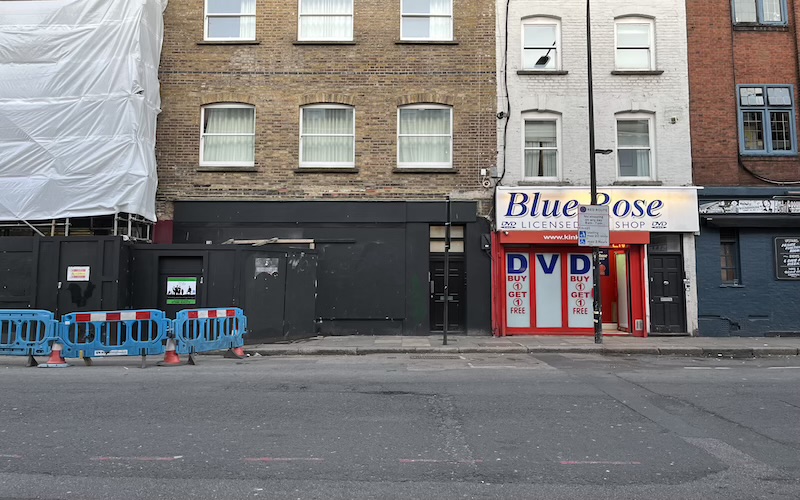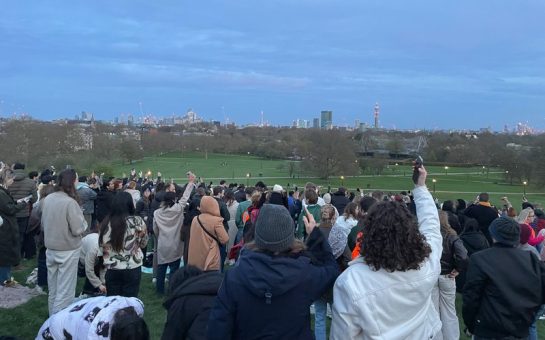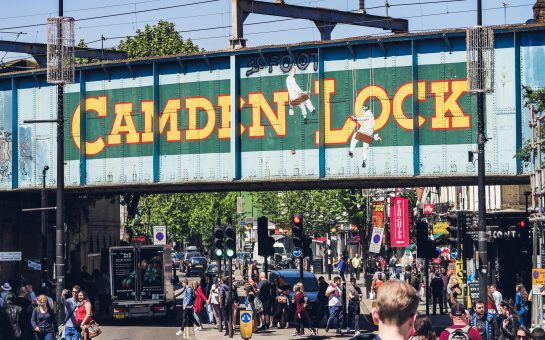Camden Council has adopted the High Street Rental Auctions (HSRA) initiative in a bid to crack down on empty shopfronts and improve footfall.
Camden was one of eight councils to adopt the scheme at the beginning of March, which allows local governments to auction premises which have been empty for more than 365 days in a 24-month period to new tenants.
Camden, along with Westminster and Hillingdon, is among the second wave of council districts to adopt the initiative, which is part of the Levelling Up and Regeneration Act of 2023, and which was first trialled in areas including Bassetlaw and Mansfield in November 2024.
A spokesperson for the Department of Housing, Communities, and Local Government (DHCLG) said: “We want to empower local leaders and communities to take control over the look and feel of their area.”
One in seven high street shops were closed in the final quarter of 2023, according to data from the DHCLG, and this initiative was conceived in the hope that reducing the number of vacant premises would improve the attractiveness of commercial districts, and in turn increase footfall for other businesses.
The initiative has been welcomed by many traders in Camden.
Aima Indigo, the manager of Mexican restaurant El Cenote, said: “Empty shops make an area in general look a bit unloved and dilapidated, so I think filling the storefronts will definitely give a better look, a better vibe, and will just make the high street look better in general.”
On the other hand, one small business owner who preferred to remain anonymous questioned the point of adopting the initiative.
He said: “In Camden, rents are so high a landlord isn’t likely to leave premises vacant because of the huge rent revenue, especially on the high street.”
This assertion was contrasted by the testimony of Tyson Dawkins, 25, the general manager of Simmons, a bar which looks out over a street containing a number of empty shopfronts.
He said: “If you think about the comparison from this street to the next one, loads of people are going down there because it’s nicer to look at, more attractive, and there’s more stuff to do.
“Down here, literally across the road, there’s an empty black building.
“It looks terrible.”
He added their footfall had definitely been affected by the unsightliness of the street in the past.
The initiative has received criticism from the Campaign for Real Ale (CAMRA), which expressed fears that developers will use HSRA to strip pubs of their fixtures and fittings and transform them into more lucrative housing.
CAMRA Chairman Ash Corbett-Collins said: “Unfortunately, unscrupulous developers are willing to go to extraordinary lengths for a short-term payout regardless of whether it robs a community of their local.”
He made a plea to the government to exclude pubs from HSRA so that urban pubs aren’t subject to a two-tier system whereby some communities have more resources to protect their pubs than others.
The organisation is calling for local councils to implement a policy excluding urban pubs from HSRA in the meantime.
When a premises undergoes intervention by the council as part of HSRA, the process is expected to take 22 to 24 weeks.
The landlord is granted a 10 to 12 week notice period within which they can make their own arrangements to enter into a tenancy, provided they meet certain conditions.
Otherwise, the council will serve them with a final notice, and enter into a 12-week auction period, where potential tenants pitch their business ideas, and a successful bidder is selected.
If landlords refuse to cooperate with local authorities, they face fines of up to £2,500.
Many premises will not qualify for the HSRA scheme due to the local benefit condition, whereby the local government authority must be satisfied that the occupation of the premises would be beneficial to the local economy and society.
It may be the case that vacant pubs are able to bypass the scheme due to this condition.
The DHCLG provided a number of resources to adoptee councils, including template notices, letters, packs, and arrangements, as well as a new burdens payment of £5,223 to cover the costs incurred by the process.
A spokesperson for Camden Council has said their adoption of the scheme is part of a range of projects which aim to revitalise the borough’s commercial areas.
The High Street is being pedestrianised to improve residents’ experience, and the ‘West End Project’ will look to rejuvenate the area around Tottenham Court Road.
Picture credit: Charlotte Wilson





Join the discussion